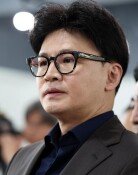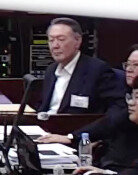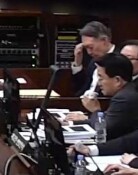Pianist Suh Hai-kyung Makes a Comeback
Pianist Suh Hai-kyung Makes a Comeback
Posted November. 22, 2007 03:38,

You should be thankful for being saved. But you should give up playing the piano.
In early October last year, pianist Suh Hai-kyung (47) was diagnosed with breast cancer. The news was a bolt out of the blue for her since she was busier than ever dealing with packed performance schedules from a New Years music concert at Hoam Arts Hall in January to concerts at the Lincoln Center Theater, Florida in the U.S., Japan, and Australia, and recording piano concertos in Germany and England in October.
The cancerous tumor which developed in her right breast had already spread to the underarm lymph, which could have easily spread to other parts of the system. Although breast cancer is not deadly if the cancer cells are removed through a mastectomy, the diagnosis was fatal enough for a pianist. Usually, breast cancer surgery involves the removal of the entire breast, all of the lymph nodes under the arm, and the muscles and nerves of the arms, which would have been a death sentence for her because she would be unable to play the piano with her right hand.
At a crossroads-
There is a more important thing for a pianist than the life or death.
She didnt listen to her surgeon insisting on immediate surgery. Fully aware of her having cancer, she went to Japan where tickets of her scheduled performances (in Kyoto, Kobe, and Hokkaido) were sold out. Suh has been practicing the piano for an average of six hours a day for 40 years, and possesses a dauntless spirit given that she stages 30 to 40 performances a year, at the same time teaching students at Kyunghee University and the Manhattan School of Music.
Why must it be me? And why now? Now, I am beginning to master the piano as instrument and beginning to develop the sound that I want from the piano.
Not coming to terms with her misfortune, she made every effort to avoid a surgery, even going to the great length of turning to alternative medicine. When this reporter visited her in February this year, she had lost her hair and was pale due to the effects of the anti-cancer medication. However, she showed an iron will in saying, Beethoven lost his hearing, José Carreras was diagnosed with Leukemia and Clara Haskil suffered multiple sclerosis that paralyzes bones and muscles. All of them showed a great sophisticated state of music and achieved resounding success after overcoming their diseases. I will make a comeback, too.
Faced with a choice at the crossroad between piano and survival, however, she experienced deep depression. After all, she decided to have a surgery from Roh Dong-yeong, professor at Seoul National University Medical School, who is one of her oldest fans and was well aware of the pianists situation.
The professor performed cancer surgeries using state-of-the-art techniques which offer complete removal of the cancer while sparing the normal tissue. In this procedure, Nerve Stimulation (electronic device sending warning signals when touched nerves) was used. It was a fight against time given that general anesthesia affects learning and memory, which will make it difficult for her to remember musical notes. The surgery finished in two hours and was a great success.
The Hope of Comeback-
A day after her surgery, she made a call to this reporter.
I underwent surgery. I can play the piano. Do you want to listen? She was shedding tears over the phone. The beautiful melody of Barcarolle in "Les Contes d`Hoffmann" of Offenbach was playing, which revealed her unique style, absorbing power with passionate and transparent tunes. After the surgery, she once again struggled with depression, but finally overcame the disease while preparing for her driving license.
She boasts a brilliant career as a pianist including many awards from renowned competitions. She was the first Asian winner at the 1980 Busoni International Piano Competition and second-prize winner at the 1983 Munich International ARD Piano Competition (with no first prize awarded), and she was also selected as one of the three worlds-best pianists by Carnegie Hall in 1988.
Professor Roh said all of her cancerous tumors had been removed, and now she could enjoy her playing the piano while receiving checks for preventing cancer relapses. She is expected to hold a comeback concert at the Seoul Art Center, on January 22, with the KBS Symphony Orchestra, as well as at KBS New Year`s concert. She also plans to record piano concertos of Sergei Rachmaninoff with the London Symphony Orchestra in September next year.
The hope of playing piano again allowed me to survive. I used to play to be recognized by audiences. But now, I understand that music is not subject to challenge and conquest. I am just thankful to be alive.
Surrounded by colorful autumn leaves on the campus of Kyunghee University, she said with the smile of a relieved person who has witnessed many ups and downs.
raphy@donga.com




![[단독]김경 “1억원 줄때, 강선우도 함께 있었다” 자수서](https://dimg.donga.com/c/138/175/90/1/wps/NEWS/IMAGE/2026/01/14/133148772.5.jpg)


